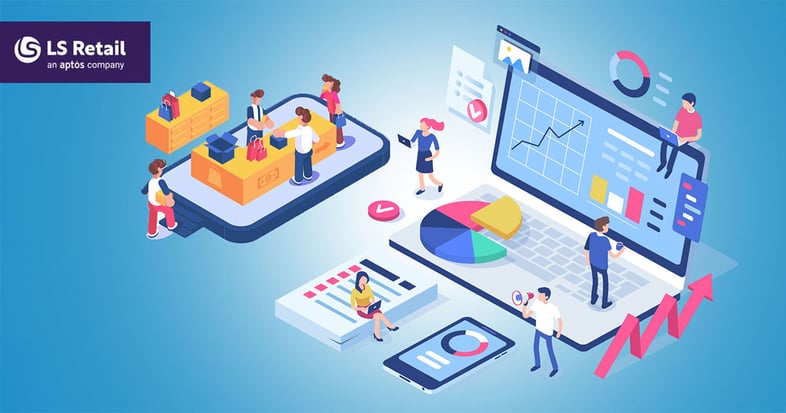Why data is the key to retail success and how you can harness it

Picture a retail universe where shelves are brimming with the latest and most sought-after products, all made possible by the power of real-time data analysis. This extraordinary reality comes to life in AI-driven stores like London's Westfield shopping center, where the decisions on what to stock are shaped by the insights derived from over 400,000 social media accounts. This groundbreaking approach signifies a momentous shift in the retail landscape: harnessing the potential of real-time data to meet consumer demands with unparalleled effectiveness.
The challenge: unlocking data's potential
Despite its immense benefits, many retailers struggle to tap into the full potential of data. Incisiv’s Retail C-Suite Survey found that less than a third of business leaders effectively convert data into actionable insights. The hurdle lies in outdated, channel-centric models that hinder a comprehensive data approach.
A comprehensive solution
To unlock the true potential of data, businesses must overcome the challenge of converting it into actionable insights while also ensuring the reliability and availability of data sources. This requires careful consideration of the software systems and platforms in use.
Currently, many businesses still rely on decentralized data systems, which leads to issues such as siloed information and disjointed customer experiences. These fragmented systems hinder retailers' ability to fully understand their customers as data gets lost across various platforms.
Fortunately, there is a solution in the form of unified software system like LS Central. Such a platform integrates all consumer-facing channels, breaking down silos and providing a single source of truth. In this way retailers can deliver personalized experiences across all touchpoints and quickly respond to market opportunities.
Artificial intelligence (AI) and cloud-based intelligence
AI is revolutionizing industries, and the retail sector is no exception. According to a recent Microsoft survey, 9 out of 10 workers hope to use AI to reduce repetitive tasks. However, until recently, AI has been a luxury that only a few small and medium-sized businesses (SMBs) could afford to invest in.
Leading the way in this transformation is Microsoft Dynamics 365 Business Central, which has been enhanced with Microsoft Copilot to provide next-generation cloud-based intelligence capabilities.
Copilot for Business Central offers a range of retail-specific benefits and seamlessly integrates with LS Central. By harnessing the power of data analytics, it empowers retailers to make informed decisions and gain actionable insights. For instance:
- Retailers can predict consumer buying patterns, allowing them to customize their inventory and marketing strategies to meet evolving customer demands.
- Forecasting demand in inventory management becomes more accurate, reducing instances of stockouts and overstock situations.
- By identifying trends from sales data and customer feedback, retailers can swiftly make informed decisions.
In essence, cloud-based intelligence offers scalable, flexible, and efficient solutions for data management and analytics. With the ability to gather and process vast amounts of data from various sources, including in-store transactions, online shopping behavior, and supply chain operations, retailers can conduct comprehensive analyses that drive strategic decision-making.
Embracing tomorrow's retail today
LS Central is a game-changing solution in today's competitive retail market. It is specifically designed for the retail sector, expanding on Microsoft Dynamics 365 Business Central and offering a comprehensive suite of tools and functionalities to cover all aspects of retail operations. From seamless Point of Sale (POS) transactions to simplified inventory management and robust e-commerce capabilities, LS Central serves as the brain and nerve center, consolidating all retail activities into one unified system. This unified system empowers retailers with instant and actionable insights, enabling informed decision-making and improving overall operational efficiency.
Choosing LS Central is not just an upgrade; it's a strategic move that helps stores succeed in the fast-paced retail world. It allows retailers to leverage data for smarter choices, enhance the shopping experience for customers, and achieve sustainable business growth.
By leveraging the power of real-time data insights and advanced technological solutions like LS Central, retailers have the ability to not only meet customer demands but also predict and shape market trends. As retailers strive for excellence in customer experience and operational efficiency, embracing unified commerce and cloud-based intelligence becomes essential for achieving sustainable growth and establishing a long-lasting presence in the ever-evolving retail landscape.
Contact our experienced team today to see how LS Central can transform your retail business.

